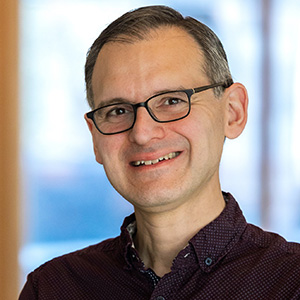Getting to know scientists half a world away
On a sunny June afternoon, while waiting for my ride to Kotoka International Airport, I started to write a report for the Wellesley College International Study Committee. I was returning home from a weeklong trip to Ghana, exploring potential international opportunities for Wellesley students.
After spending time in the cities of Kumasi and Accra, I emerged with an appreciation for flavors of the bean-based dishes red red and waakye, and several tracks by the Afropop musician Stonebwoy were newly loaded onto my phone. But despite those culinary and musical gains, the highlight of my visit was meeting with Ghanaian students and faculty to learn about their experiences in the research lab and classroom. They showed me the advances they were making and the unique opportunities and challenges of their institutions.
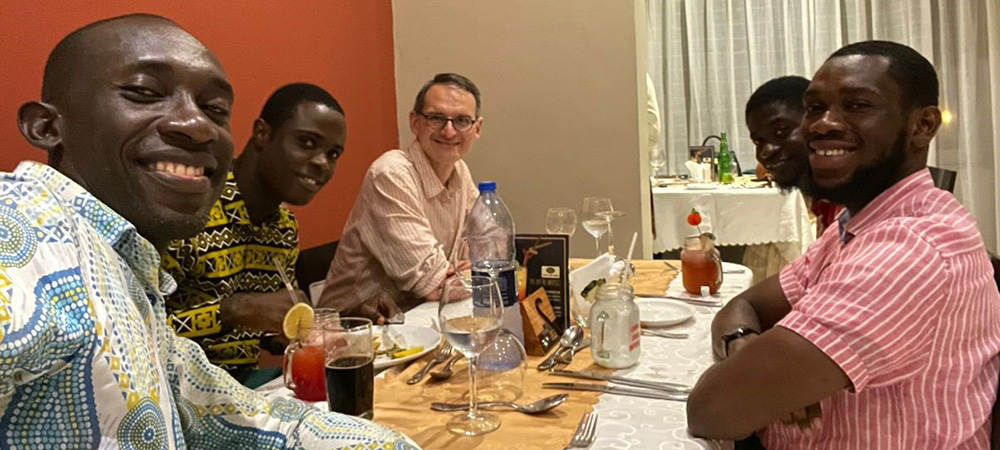
About half of Wellesley students participate in study abroad programs as undergraduates, but those international experiences don’t fit all students’ academic plans. The students who do study abroad typically spend time at only one institution. Thus, while I was excited to develop programs that would bring Wellesley students to West Africa, I knew that a relatively small number of our biochemistry and chemistry majors would ultimately travel to that specific location. As I finalized the report on my return flight, I wondered how I could help more students make international connections without leaving campus.
Back in Massachusetts, I was soon scrambling to finalize the syllabus for my fall seminar course, “Can Biochemistry Help Address Societal Problems?” This course was part of the Calderwood Seminars in Public Writing, a program that includes courses in the sciences, humanities and social sciences. In these seminars, students present advanced ideas from their discipline in writing assignments aimed at a nonspecialist audience. In past years, my Calderwood Seminar students have written scientific news pieces, executive memos, op-eds and highlight sections of introductory chemistry or biology textbooks, all based on articles from the primary literature.
My students had also written interview profiles highlighting the research of faculty members. Previous classes interviewed Wellesley faculty, but I realized that this assignment could be adapted to connect my students with the work of my Ghanaian colleagues.
I floated this idea to Lawrence Sheringham Borquaye, a faculty member at Kwame Nkrumah University of Science and Technology, or KNUST, who is spending his sabbatical this year at Wellesley. He agreed this could be an effective way to build connections between our campuses, and he went to work recruiting participants. Although the assignment fell during a long break in the KNUST academic calendar, 10 of his colleagues volunteered to do interviews with my seminar students.
Coordinating with someone across an ocean is more difficult than coordinating with someone whose office is down the hall. However, my students are comfortable with remote technologies, and they appeared to relish the opportunity to develop these international relationships.
Each Calderwood seminar student writes an end-of-semester reflection on their experiences, and almost all of my students wrote about their interview assignments.
Anna Huang noted she liked “just getting to know” her interview subject and “the process of crafting a story.”
Several students said the structure of the experience brought out some of their best work, including Anastasija Vasilijevic who noticed that she “wrote almost with ease, while I struggled with some other assignments” as she could “highlight the work and personality of the person I interviewed.”
For Helena Eich, "the piece became more personal … I think I was able to make people feel like they knew her by reading just a couple of paragraphs.”
Many interviews fit perfectly into the course’s theme of research addressing critical societal issues. Giulia Trevellin wrote that “instead of focusing the profile solely on Dr. Darko, I used the broader topic of illegal mining in Ghana to talk about his research … I think I captured one key focus of his research and his personality while also addressing a serious issue in the country.”
In Calderwood seminars, we talk about the full drafts of assignments during in-class writing workshops, so all students read their classmates’ drafts. We discuss each draft for about 10 minutes; classmates give feedback to the author on the structure of the piece, appropriate description of scientific content and ways to better engage the specified audience. In the workshop on the interview profiles, each student evaluated their classmates’ interviews, which helped them better consider their own experience.
We recently accepted applications for a summer research internship for Wellesley students at KNUST, and the seminar students informally shared what they learned about the work of potential KNUST faculty mentors.
Reading my students’ interviews gave me new insight into the scientific and personal motivations of my KNUST colleagues and led me to consider further connections and partnerships. I appreciate the gift of time and engagement those colleagues gave from almost 5,000 miles away. We at Wellesley look forward to returning the favor.
Here are edited excerpts from the profiles by my students.
Science is everything
Linda Aurelia Ofori has been interested in science since she was just a child in Tarkwa, Ghana. Her father’s work as a chemical engineer in the gold mines of her town sparked her fascination.
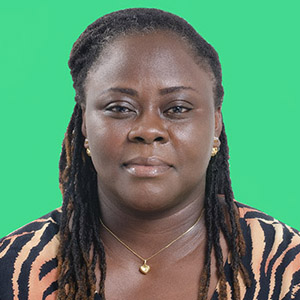
“He would always make you feel like science was everything," she said and chuckled while fondly remembering his lessons. "So when you brew tea, he would tell you that it’s science at work. In the kitchen when we were cooking, he would tell you, ‘This soup we are making is a lot of science.’ Any food on the table, he would relate to science.”
With her father’s voice in her ear, she noticed science in all facets of her life, eventually leading her to examine microbial transmission in Ghanaian communities.
Ofori pulled on her rubber boots and ventured into chicken houses to collect poultry fecal samples and into surrounding Ghanaian communities for human fecal samples. She grew cells from the collected samples and ran an assay to amplify the genetic material of the bacteria. Then, she sent the genetic material to another lab to determine the sequences.
Each sequence is unique to the bacterial strain, allowing the sequences to serve as name tags. Ofori compared the sequences from human and poultry bacterial strains to understand if poultry consumption caused human Salmonellainfection.
If there was a significant similarity in the sequence, they could have concluded that transmission was coming from the poultry. It would be like they wore the same name tag. However, she found that the sequences showed some similarity to poultry, but not 100%, indicating human-to-human transfer was more likely, with poultry transfer happening sometime in the past.
—Helena Eich
Technology is key
Edmund Ekuadzi had always enjoyed elucidating the structures of natural compounds. He traces this interest back to his childhood when he was intrigued by solving puzzles through games like Scrabble.
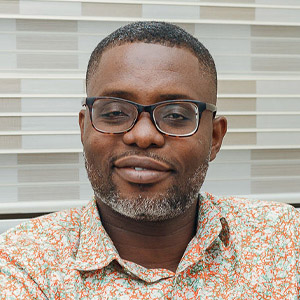
He shares his enthusiasm for structural elucidation with the students in his lab, where he reminds them, “The data can never be wrong. The data would always corroborate itself … the data should tell you that you actually have a structure — you can’t make it up.”
At KNUST, Ekuadzi played a pivotal role in encouraging administrators and chancellors to invest in new technology and resources in the hopes of helping other researchers carry out their research without technical barriers. For example, chemists often rely on a nuclear magnetic resonance, or NMR, spectrometer to identify the chemical structures of compounds. This instrument is fundamental for any scientist working in pharmacognosy (the study of drugs from plants, animals and other natural sources) and can cost millions of dollars.
Ekuadzi proudly describes the efforts that his institution made in investing in these instruments. “There are only two of those NMRs that sit in West Africa … And one of them sits with us at KNUST.”
Ekuadzi and his lab at KNUST are investigating natural compounds in hopes of identifying new drug candidates. He has mentored up to 70 students in their research projects and teaches lectures in pharmacy and herbal medicine.
When asked to describe what a normal day at his job is like, he laughs and says, “A normal day is coffee, lab, teaching and meetings … And when I still need that caffeine, I’ll still do coffee and mix it up with tea.”
—Anna Huang
Beating down the price of solar
Nathaniel Boadi’s environmental research extends to the energy sector of Ghana.
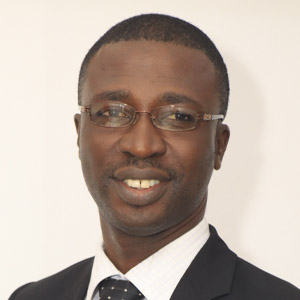
“In Ghana. we have hydropower and thermal power, but we don’t have solar power units to the size we want,” he said. “We have a lot of sun, but the cost of acquiring solar energy makes it an uncommon source of energy in our country.”
Ghana is only a few degrees north of the equator, thereby receiving the most sun on earth. Drawing upon his well of curiosity and scientific inquiry, Boadi thought to solve this problem by looking for other materials for the production of solar cells.
His primary goal? “Beat down the price to make it more affordable for households.”
Boadi led research that identified lead chalcogenide nanoparticles and thin films as potential cost-effective materials for solar energy. Through the internal production of these novel solar sources, Boadi said he could be sitting on a “gold-mine” of economic opportunity for Ghana’s energy sector.
Boadi stressed that this new industry holds immense significance for his country. Unlike the metal industry, which primarily funnels profits to foreign nations, this one has the potential to bring wealth to the Ghanaian people.
—Isabella Stewart
A lack of political will
Growing up in a rural village in Cape Coast, Ghana, Godfred Darko saw first-hand how gold mining impacts the environment, which ultimately impacts agriculture and the economy. Before pursuing his career in chemistry, Darko was actually interested in farming because he saw how agriculture touches nearly all aspects of Ghanaian life.
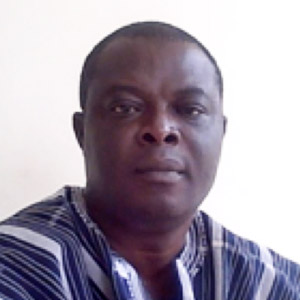
“Even in my house I do a bit of agriculture. But I do chemistry for a living,” he laughed, showing me around his small garden through a grainy Zoom screen.
Darko has made compelling findings regarding the mercury levels in water, soil and air due to illegal mining, but the harmful practice continues. “There is a governmental issue at play here,” he said. “The government tried to create a task force to stop people from burning mercury improperly, but illegal acts continue.”
Because so many Ghanaians rely on gold mining for their livelihoods, it is hard to get politicians to put an end to the practice. “People say, ‘If you stop our livelihoods, we will not vote for you.,’” Darko said. “The political will is very weak here.”
Now on his 150th publication, Darko hopes his research can have a more significant impact on the Ghanaian environment and people.
“We tend to have lots of ideas, lots of scientific data about our system, but sitting only on the shelf of the professor, sitting only in the publications of the group,” he said. “I am looking for a future where there will be that collaboration with the government, where some of these findings will be implemented in our policies.”
—Giulia Trevellin
Seeds for hunger
“When you push hard to build your career, you should always strive to solve the problems of humanity at the same time,” Mercy Badu said of her research motivation.
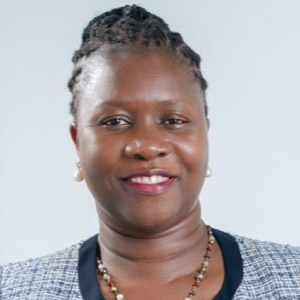
Badu’s work is in natural products chemistry, more specifically oil seeds and their nutritional and medicinal properties. She’s looking at seeds growing in the savannah area of Ghana, such as sesame. These plants are adapted to survive harsh weather conditions, and Badu hopes plants that grow well in this arid climate can be used to counter the food insecurity that comes with climate change.
She is assessing if these oils can be used as food, by looking at mineral composition, such as sodium, calcium and potassium, but also at antinutrient compounds such as oxalates, that can reduce nutrient bioavailability. Her lab is also testing the toxicity of these oils by feeding them to mice and observing their liver and kidney functions.
Badu coming to this research topic is a two-part story. It starts with her community, which faces malnutrition issues, especially among children.
“Your community is where you come from,” Badu said.
She often does community outreach to assess what plants and seeds are being used and to focus her projects on plants that are used in nutrition and are already familiar to the population.
No significant literature exists on oil in seeds and their nutritional and medical compounds, so Badu’s work on oil samples and increasing their nutritional values might help solve Ghana’s hunger problem.
The second part of the journey started with her Ph.D. work testing the solubility of oil in water. As anyone who spent some time in the kitchen knows, oil and water don’t mix well.
Reading the obvious confusion on my face, Badu explained that she was investigating surface tension and properties of the interaction between oil and water. More compatible water and oil mixing would be useful in the food and drug industry.
—Anastasija Vasilijevic
Enjoy reading ASBMB Today?
Become a member to receive the print edition monthly and the digital edition weekly.
Learn moreGet the latest from ASBMB Today
Enter your email address, and we’ll send you a weekly email with recent articles, interviews and more.
Latest in Opinions
Opinions highlights or most popular articles

Let’s make ASBMB awardees look more like BMB scientists
Think about nominating someone outside your immediate network.
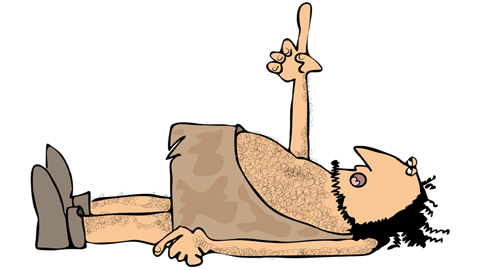
A paleolithic peer review
You might think review panels have only been around for the last century or so. You would be mistaken.

Early COVID-19 research is riddled with poor methods and low-quality results
The pandemic worsened, but didn’t create, this problem for science.

So, you went to a conference. Now what?
Once you return to normal lab life, how can you make use of everything you learned?
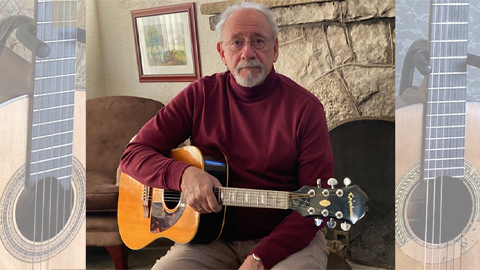
My guitar companion
A scientist takes a musical journey through time and around the world.
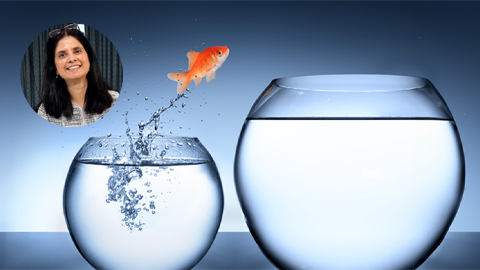
Catalyzing change and redefining purpose
To mark Women’s History Month, Sudha Sharma writes about her journey from focusing on her own research program to being part of a collaborative COVID-19 project.

